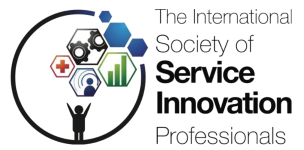On March 24th, 2014, ISSIP in Collaboration with California Center for Service Science and IBM held its first Symposium on the Future of Service Innovation at the historic Almaden Research Center in San Jose, California. This was a by-invitation only event that was open to ISSIP members. The Symposium coincided with the annual T-Summit which began on the evening of March 24th and went through March 25th.
The event brought together leading Service Innovation thought leaders, practitioners, and researcher to explore challenges and opportunities for future of service innovation. Paul Maglio, Founder of CCSS, and I opened the event with introductions and remarks about the purpose of the Symposium which was to explore challenges and opportunities for service innovation in business and society, and to examine what it means to build innovation capacity in a world that is rapidly changing and becoming more complex.
In his keynote, Martin Fleming, Chief Economist IBM spoke about the signs of global economic resurgence and the importance of service innovation specially analytics applied to big data to provide data-driven insights to self learning systems ( cognitive computing) as service platforms that will transform existing public and private infrastructures.
Haluk Demirkan, Professor of Service Innovation and Data Analytics, University of Washington moderated the morning panel session on Future of Service Innovation in Business and Society. On the panel, Ammar Rayes, Distinguished Engineer, Deborah Stokes, Leader, Global External Research, EMC, Bob Rodio,Chief Technologist, Network Transformation Solutions, Ciena, Niels Feldmann, Senior Managing Consultant for Strategy Consulting at IBM Global Business Services, and Research Associate for Service Innovation at Karlsruhe Service Research Institute (KSRI), and Anthony Boccanfuso, Executive Director, National Academies University Industry Demonstration Partnership each provided their perspective on business imperatives in the age of Big Data/Analytics/Cloud/Cognitive Computing and the fast changing nature of jobs and skills required to drive innovation in the 21st century.
Vish Krishnan, Professor, UC San Diego, moderated the afternoon panel on Building Innovation Capacity. On this panel, Lisa Tenorio, Director Academic Programs, Salesforce.com, Jeff Saperstein, and Hunter Hastings, Professors Hult International Business School, Andrzej Rucinski, Professor, University of New Hampshire, Mark Davis, Bentley University, Sriram Dasu, Professors, USC Marshall School of Business each shared their perspective on academic-industry initiatives that will help prepare the next generation of talent for the jobs of the future.
In the afternoon keynote, David Teece, Director, Institute for Business Innovation. Haas School of Business University of California, Berkeley, emphasized the importance of “Dynamic Capabilities” over “Ordinary Capabilities” in a firm to innovate and thrive in the 21st century. Dynamic Capabilities require systems thinking and are those intangible assets including process innovation and entrepreneurial management (T-shape managers) that provide sustainable differentiation. “Ordinary capabilities” such as technical capabilities are necessary, but not sufficient for long-term advantage. Sound business models and T-shape managers enable dynamic capabilities, and that in turn “enable[s] the business enterprise to adapt knowledge in time and space and to respond to (and shape) changes in the business environment.”
Finally Charlie Bess, ISSIP President and HP Fellow , facilitated the closing session by inviting the audience into a dialogue, and asking how ISSIP could better promote service innovation and co-create value for our members. The following are the highlights of the audience responses:
- Grand challenge events and hackathons supporting service transformation efforts
- More website interactions, more news, more announcements.
- We need to make ISSIP an open innovation platform for people and companies to come with innovative ideas for possible support, collaboration etc.
- More volunteers needed
- More educational programs, internships, student mentor programs etc.
I invite you to share your thoughts by making a comment here or sending me a note to yassi@issip.org.
The presentation slides may be found on the ISSIP website: http://www.issip.org/symposium2014/.
I would like to acknowledge Professor Haluk Demirkan for his contribution to this blog post.
Yassi Moghaddam, ISSIP Executive Director
